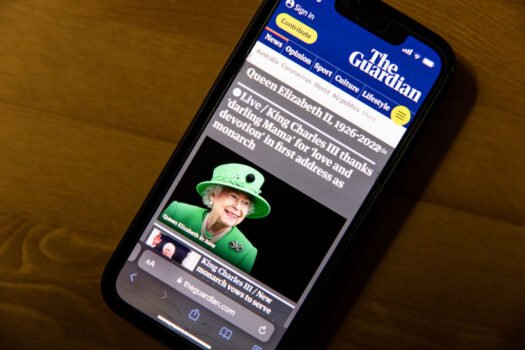The Guardian newspaper has apologised for its founder’s role in the transatlantic slave trade.
The Scott Trust, which owns the Guardian Media Group, has pledged 10 million pounds (US$12.3 million) to communities linked to the activities of John Edward Taylor, the journalist who started the paper in 1821.
“The Scott Trust Legacies of Enslavement report, published on Tuesday, revealed that Taylor, and at least nine of his 11 backers, had links to slavery, principally through the textile industry,” according to Aamna Mohdin, the community correspondent for the paper.
“Taylor had multiple links through partnerships in the cotton manufacturing firm Oakden and Taylor, and the cotton merchant company Shuttleworth, Taylor and Co, which imported vast amounts of raw cotton produced by enslaved people in the Americas.”

The funds from the Trust will support projects in the United States and Jamaica over the next decade following consultation from experts and community groups.
The Guardian Media Group operates British, Australian, New Zealand, and U.S. editions.
Apologising for Slavery
The media group’s move comes as a wave of Western institutions apologise and pay reparations for past links to slavery, including the Church of England, the Dutch prime minister, Harvard University in the United States, and the city of Edinburgh, Scotland.
“It is impossible to look out from this building across the city and not see how the landscape of the city was shaped by the wealth generated from colonialism and slavery,” wrote Edinburgh’s Lord Provost Robert Aldridge.
“The effects of colonialism and slavery are deeply embedded in the fabric of our city, in the buildings, in the institutions and even in the way that Edinburgh is laid out.”
Calls to address slavery come following the rise of the Black Lives Matter movement in the United States, which was sparked by the death of George Floyd in 2020.
Yet one criticism has been the oversimplification of the dynamics and history surrounding slavery, which was a widespread practice over much of history.
For instance, according to some estimates, the Arab trade may have seen millions more Africans enslaved and deported to other regions compared to the transatlantic trade.
Further, the slave trade really met its end after campaigning by Christian conservative William Wilberforce.
This eventually led to the British government abolishing the practice in 1807 (under King George III) and dispatching the Royal Navy to enforce the ban.
Links to Marxism
Further concerns around the slavery discourse are the overt focus on “white oppression,” which some experts say is simply a cover for promoting critical race theory (CRT).
CRT is an outgrowth of Marxism that views society as nothing more than a constant battle between classes—an “oppressor” versus an “oppressed” class.
In the case of CRT in the United States, the oppressors are “white” individuals and institutions, while the oppressed are “blacks.”
In other countries, the oppressors are colonists from Britain, in the case of Australia, or Britain and France, in the case of Canada, while the oppressed are the Indigenous communities.
In modern times, campaigners for CRT often try to galvanise the oppressed class (and sympathetic partners) to “overthrow” or “cancel” the institutions and speech of the oppressors.
While campaigners will talk about helping the oppressed communities, the reality is their efforts often have little impact on the grassroots.
Notably, in Australia, a campaign to alter the country’s Constitution to embed an “advisory body” for Indigenous people into the federal Parliament has been panned for its lack of detail on how it will help deal with problems like Aboriginal domestic violence, alcoholism, juvenile delinquency, and welfare dependency.